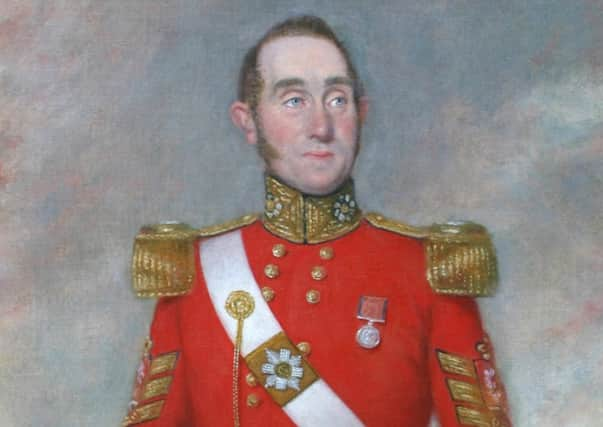Did YOUR ancestors fight at the Battle of Waterloo?


An unprecedented search for up to a million Britons whose ancestors fought at Waterloo is being launched.
Hundreds of thousands of people living in the UK are estimated to have forebears who took part in the fighting in 1815.
Advertisement
Hide AdAdvertisement
Hide AdExperts believe many are “totally unaware” of their relatives’ involvement in the battle and are calling on people to research their family histories to see if there is a link.
The campaign is part of a number of events to commemorate the battle, which saw the final defeat of Napoleon Bonaparte and marked one of the most crucial events in European history, in the months before the 200th anniversary in June.
Those with verified family connections will be given the chance to appear at one of the highest-profile events later this year.
James Morrow, honorary secretary of Waterloo 200, which is overseeing commemorations, said there are thought to be a total of between one and two million people around the world who are descended from those involved in the battle.
Advertisement
Hide AdAdvertisement
Hide AdA large proportion of those are believed to be living in Britain, many in Yorkshire. The Yorkshire-based Duke of Wellington’s Regiment, now part of the Yorkshire Regiment, was involved at Waterloo as were other Yorkshire troops.
He added: “A very, very large number of people are totally unaware that they had an ancestor at Waterloo.”
Around 350 people have already come forward to register the details of their ancestors, with a number submitting accounts of their forebears’ involvement in the battle on June 18, 1815.
“We are not aware that this type of search has been attempted before,” said Mr Morrow. “The momentum has picked up and we are thrilled that we are getting bombarded with people’s stories about their descendants.”
Advertisement
Hide AdAdvertisement
Hide AdOrganisers hope the campaign will help as a tool to revive flagging interest in and understanding of the significance of the battle.
Sir Evelyn Webb-Carter, chairman of Waterloo 200, described the event as a “defining moment in European history”.
“It was, I think, one of the most decisive battles of all time,” he said.
Those who can show their family connection to the British, Allied or French armies will then be given the opportunity to apply for tickets to attend a commemoration service at St Paul’s Cathedral on the 200th anniversary.
Advertisement
Hide AdAdvertisement
Hide AdA descendant of a British soldier who survived one of the fiercest attacks at Waterloo has spoken of her pride at his feats.
Christine Dabbs, 62, of Nottinghamshire, learned when researching her family tree that her great, great, great-grandfather’s brother, Matthew Clay, took part in the heroic defence of a farm that was crucial to the Duke of Wellington’s victory.
She said: “For this young lad whose parents couldn’t read or write to write this book – I’m so proud of him. He was a very nice bloke and he survived it all.”
Those wanting to investigate whether they have a family connection can visit www.findmypast.co.uk
Details of the Waterloo 200 campaign can be found at www.waterloo200.org/.